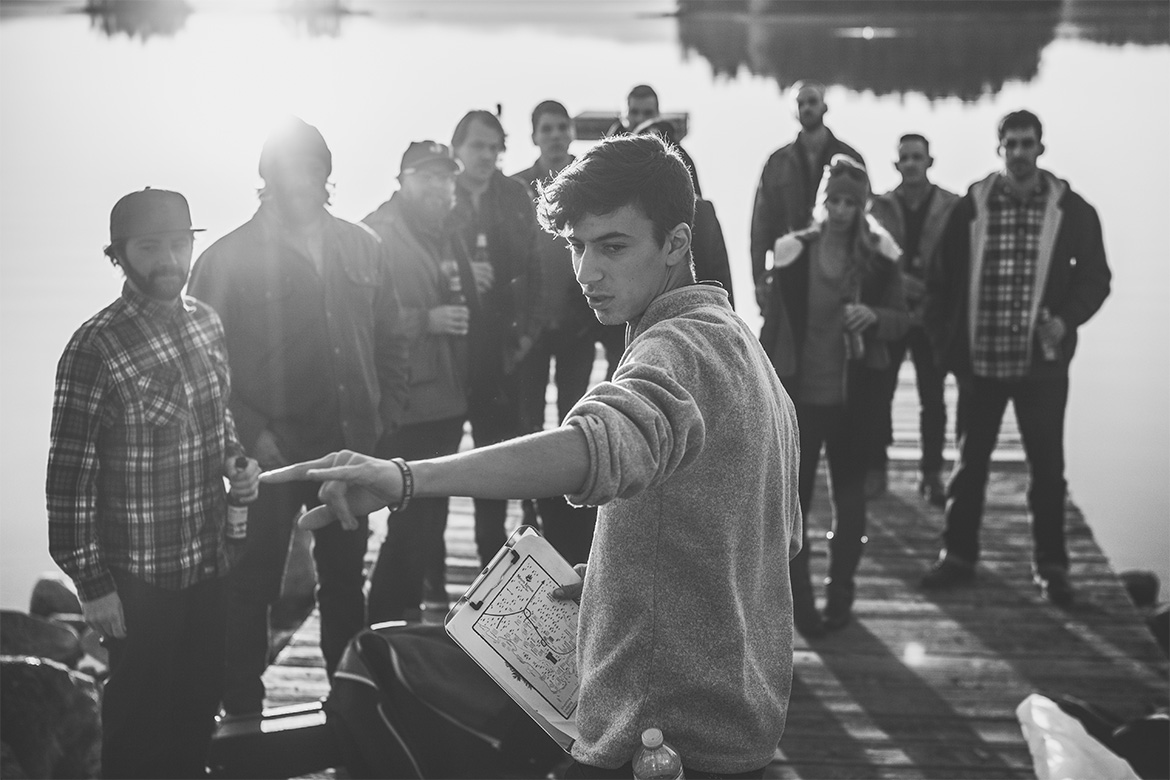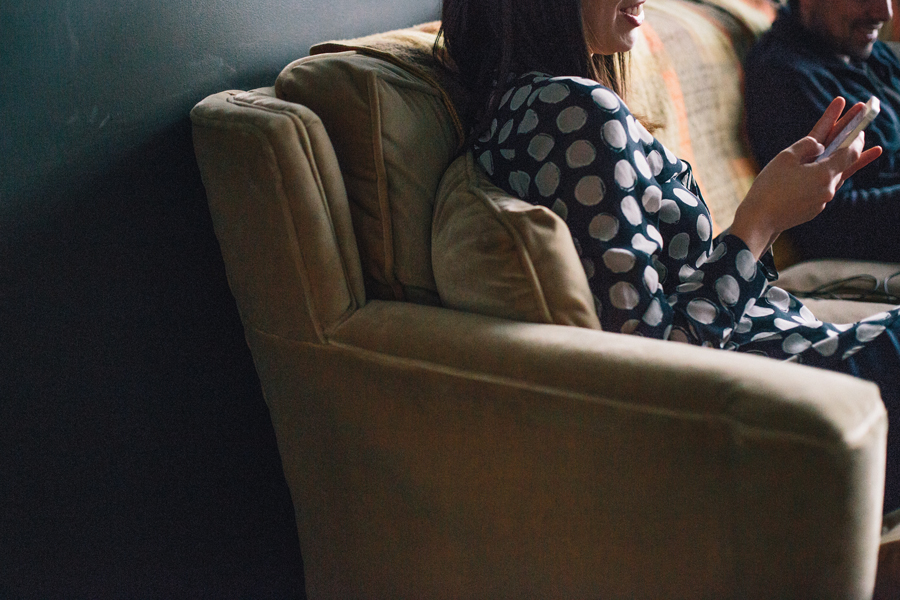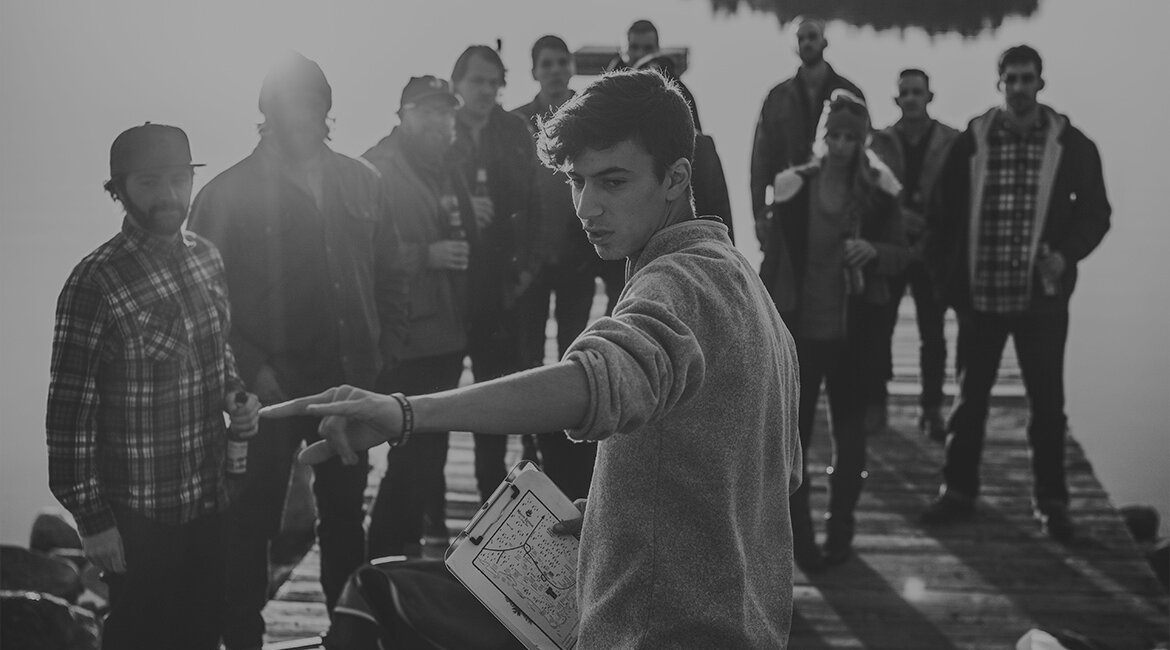There’s no secret formula for getting great performances from your actors. Just kidding — yes there is! And Adrienne Weiss knows all the ingredients. After beginning her career directing plays at Yale, Adrienne has gone on to write and direct feature films (her first feature premiered at Sundance); coach directors on feature films and for shows like Girls, 30 Rock, and American Horror Story; and teach courses at NYU and Columbia on how to direct actors. She is also the founder of DirectingActors.com, teaching private workshops that give directors the tools they need to get great performances from their actors. So, yeah, she knows what she’s talking about.
We recently Skyped with Adrienne and asked her all sorts of questions about directing actors — what to do when the performance is going downhill, what kind of feedback is actually helpful, and what types of mistakes young directors commonly make. Adrienne’s answers were mind opening. Clearly, she’s mastered not only her craft, but teaching others how to do it as well.
Here’s our conversation with the generous and slightly under-the-weather Adrienne Weiss.
Adrienne: I’m going to eat soup while we talk.
Musicbed: Please do. So how did you end up becoming a director and a directing coach?
When I was in high school, my drama teacher told me, “I think you could be a director,” and I thought, Oh, that sounds interesting. So I ended up going to Yale and directing a bunch of plays. I learned a ton from some great teachers and also just from trial and error. After Yale, I came to New York to start a theater company, but it just so happened that a lot of the young theater actors I worked with were also film actors. Some of them went on to be pretty big.
Anyway, every time these actors would come back from making a movie, I’d ask them what it was like, what the director was like. And what I heard very often was they weren’t having good experiences. They were put into situations where they felt like they couldn’t do their best work. The director wouldn’t direct them at all, or he’d direct them too much; either way, there was this disconnect.
I learned a ton from some great teachers and also just from trial and error.
When I started transitioning from theater into film, I saw this firsthand. Filmmakers would work so hard to get everything together for their films, and then it would come to the moment when they had to direct the actor on set, and it wouldn’t work out. There was a serious problem there.
For some reason I had a knack for getting good performances out of actors. I’d had the benefit of the opportunity to practice and some great teachers. So that’s what led me to create my company and develop this whole approach to directing actors.
Did you already have a method in mind when you first started?
I had a few bits of technique, but I didn’t really know how I was getting these good performances. It was mostly instinct. But as I started teaching, I became aware of the things I was doing over and over again that worked. Very gradually a method began to form. Now I have a very precise method that’s a distillation of almost 30 years of directing actors.
…I have a very precise method that’s a distillation of almost 30 years of directing actors.
So what’s the secret?
One of the trickiest things about directing actors is everybody knows a great performance when they see it, but few people know why it’s great. If you don’t know what makes a great performance great, though, you have no way of fixing a bad performance. You have no diagnostic framework. You’re lost at sea. That’s when directors start throwing out a bunch of direction and confusing the actor. It’s very, very hard to give precise direction that will improve a performance if you don’t know why it isn’t good.
So that’s my starting point: help directors understand what makes performances work. Help them understand the components of a great performance. Once you understand what makes up a good performance, you can work backwards and fix what’s wrong or add what’s missing.

What makes a good performance?
This probably won’t surprise anybody, but the starting point for a good performance is the actor has to be emotionally connected to the circumstances of the character. To quote Sanford Meisner, one of the great acting teachers, “Acting is behaving truthfully under imaginary circumstances.” A good actor is living an imaginary circumstance as if it’s true. It’s not an intellectual thing. It’s a physical, visceral, emotional thing. That’s the first thing.
And then — secondly — that visceral, emotional energy needs to be directed toward achieving a goal. The actor needs to know her objective. One of the hallmarks of bad acting is self-consciousness, and the way you overcome self-consciousness is by putting the actor’s focus on what she is trying to accomplish in the scene.
“Acting is behaving truthfully under imaginary circumstances.”
I use the analogy of a basketball game. In basketball, there is an incredibly simple and specific goal: get the ball in the hoop. But the pursuit of that simple goal is absolutely riveting and totally spontaneous. Not to mention utterly unselfconscious. Those players are just going for it and it’s compulsively watchable. A great performance is like that. The character is motivated, she’s going for something, and she’s not thinking about herself. It’s riveting to watch.
The third critical element is what Meisner called “Pinch and Ouch.” If I were to pinch you right now, you’d probably say, “Ow.” But if I pinched you harder, you’d be more like, “Ouch!” That’s an honest reaction. Great performances are all about honest reactions. It’s not that you need one actor to say her lines this way and the other actor to say his lines that way. You need to set up an interactive system, and then you need to set that system in motion. Then the scene becomes spontaneous on its own. Pinch and Ouch.
Your job as a director is to set up your actors to have an experience on camera. For example, let’s say you’re shooting a scene where the character needs to find a book of matches. The character is looking for matches, but the actor probably already knows where the matches are — top drawer on the left. So here’s what you do: hide the matches. Then tell the actor, “Go find the matches.” Now you are capturing a real performance.
Your job as a director is to set up your actors to have an experience on camera.
What do you do if the actor isn’t getting there?
A simple thing you can do is have a different actor provoke a real response. That’s an example of Pinch and Ouch. Stop focusing on getting the one actor to ouch. Instead, focus on getting the other actor to pinch him.
Are there some classic mistakes you see young directors making?
A couple things. The classic one is trying to describe what emotion you want the actor to have in the scene. You never want to say, “You’re really upset here,” or “You’re really angry here.” You don’t want to go straight at emotion like that. What you want to do is give them the circumstances and the facts that are going to produce that emotion naturally.
Another mistake directors make is describing in detail what they liked about the last take. You never want to be specific about what you liked, because it completely kills the actor’s ability to be spontaneous.
What kind of affirmation should a director give?
Keep it general. Just say, “Great job,” or “I think it’s really working,” or “Keep going in that direction.” But don’t poison their minds with specifics.
Another mistake I see directors make is talking to actors in front of each other. Let’s say it’s a scene where two friends are at odds. Don’t say out loud to both of them what the other one is thinking and feeling. Think of it like boxers in a ring. They go back to their separate corners and talk to their coaches. They don’t stand side by side in the middle of the ring while their coaches say, “Okay, you’re going to punch him in the face now, and then he’s going to punch you in the face, and then he’s going to punch you in the side…” That totally takes the spontaneity out of the fight — just like it will take it out of your scene.

How can a director work on their craft?
Aside from taking classes, practice is really important. You learn by trial and error. One of the tricky parts about being a filmmaker is that it’s so hard to get a film together. You’re really not doing it that much, as opposed to theater, where you can put on a play in your living room. And you can rehearse with actors for weeks, so you end up getting a lot more practice.
Here’s the thing, though. There are a lot of actors in the world who want to practice their craft too. Try getting some actors together and putting together a few scenes. Practice directing. Always feel empowered to practice.
What assignment would you give a director?
I learned a lot from doing something called a “neutral scene.” The scene is neutral because you don’t know who these people are or what their relationship is. The script is just dialogue. So it might be something like:
Male: “Stop it.” Female: “Stop what?” Male: “You know.” Female: “No I don’t.” Male: “I told you to stop.”
That could be so many different scenarios. A mother and child. Two cops. Lovers in bed. Because the script is neutral, it forces the director to make decisions, create relationships, create a compelling backstory. It forces the director to become very specific. And for a director, being specific is precious gold. You can actually Google “neutral scene” and a bunch will come up.
What’s the best piece of advice you’ve ever gotten?
As a director?
Anything.
I once got an outstanding piece of advice from my Buddhist teacher that has been enormously helpful. I was about to direct my first feature, and a day or two before the shoot, I woke up in a cold sweat. I was having a panic attack. All I could think about was how it could go wrong. And that’s when this advice really sunk in: “Always rely on a happy mind alone.” Which means, basically, trust a peaceful, calm mind. Don’t trust an agitated mind. If you’re having a problem and there’s something you can do, then just stay peaceful and take the steps you need to take. If there’s nothing you can do, then there’s no reason to be agitated. It’s such powerful advice.
“Always rely on a happy mind alone.”
Most creative people I know — certainly people in the film world — feel this tension to do something good. We live in that state of tension all the time, mistakenly believing the tension is helping us, when really it’s just blocking our creativity. So that’s what I reminded myself when I started having that panic attack: my main job is to stay peaceful and take the actions I need to take.

And it worked?
It worked. One of the things I realized when I started practicing meditation and studying Buddhism was that a lot of the motivation behind my artistic endeavors was ego-driven. I wanted to prove I was great and I could do great things. For a time I wondered if I needed to stop creating. But what I learned was that I just needed to change my intentions. Now my intention has become, What can I give to other people through this film? What can I give them that will be helpful or valuable or enjoyable?
When you start thinking about other people, your process becomes very relaxed. When we think about benefiting others, we stop stressing out. If your friend is sick and you’re helping him, you’re not stressed. You’re just focused on him. You’re happy to help. If we can learn to live our lives with the intention of benefiting others, then whatever we do, we can be relaxed and happy. We can enjoy it.
That sounds pretty good.
It’s fantastic.
If you’re interested in learning more, check out DirectingActors.com for information about her workshops and resources.

















































































